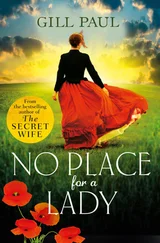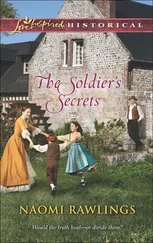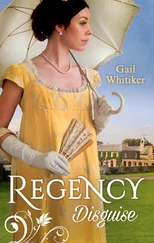Still, her features seemed too perfect, too delicate, to be from his world. As if, like Sleeping Beauty or another tale from his school days, a kiss could breathe life back into her.
Michel smoothed a strand of hair away from her cheek. If only the world would be so simple that a kiss could save a woman’s life.
Instead of pressing his lips to hers, he covered her nose and mouth with his hand. A faint exhale of air tickled his skin.
Alive!
He touched her forehead and cheek, then ran his hands down her torso and legs as he searched for injuries. When he touched the left side of her rib cage, she inhaled sharply and groaned.
Michel sat back. The girl would require care: a place to rest, a doctor, medicine. He could bring her home, but he couldn’t provide her with much. Would it be enough?
Leaning forward, he bent his ear to her chest in search of a heartbeat. His ear bumped something hard beneath her dress. Frowning, he placed his fingers over the spot, and finding a chain, he fished the necklace out from beneath her fichu and chemise.
A heavy cross emerged from her neckline and fell into his palm. Silver vines curled around a gold cross and at its center sat a large square emerald. It was beautiful, a relic from times past, not like the jewelry sold every day in the market. And it was authentic. If the weight didn’t give its genuineness away, the mesmerizing gleam in the center stone did.
He dropped the cross irreverently.
The woman was no beggar. No traveler.
Perhaps she was a member of the bourgeoisie. The wife of a Parisian accountant or lawyer. That would explain the expensive adornment.
Michel stood. Then she wouldn’t be traveling alone, dressed in coarse wool and linen. She’d have a finer dress. Non. She could only be one thing: an aristocrat disguised as a peasant and seeking escape. She’d made a good attempt by getting within twenty kilometers of the shoreline. Most aristocrats had already fled the country or met the guillotine, but she apparently survived—until now.
He gritted his teeth. To think he’d felt sorry for the wench. It mattered not whence she came or how hard her journey. Her class had grown rich off his sweat and deprivation. Perhaps the fools in Paris set the price of his grain, but they hadn’t stolen from him the way the aristocrats had. They took half his crop in taxes and then taxed the money his crops brought in. They played games while he worked, frolicked while he plowed both his fields and their land. Then they banned him from hunting and fishing the woods for food while they did so for sport and left animal carcasses to rot in the sun.
Michel stepped back. He wouldn’t help her. He couldn’t.
He surveyed the trees for movement yet again. Was she a trap? Had roaming soldiers attacked her rather than thieves? Did they watch to see if anyone helped?
He took another step away. Judging by her skin’s temperature, she would die soon, and being unconscious, she would feel no pain. There would be no cruelty leaving her where she lay. He grabbed his fishing pole and turned toward the pond.
I was naked, and ye clothed me.
Michel halted as Father Albert’s words from a Sunday long past scalded his mind.
But the girl wasn’t naked. And he couldn’t help her, not even if he wanted to—which he didn’t. He’d be guillotined if he took her in and got caught.
He strode toward the pond. Besides, Father Albert had been talking about clothing the orphans in Paris, not the rich who had dressed in silks at his expense.
I was hungry, and you gave me meat.
Oui, and he wouldn’t have any sustenance for himself if he didn’t get to the pond and catch something. He quickened his pace.
I was thirsty, and you gave me drink.
Michel sighed and cursed himself for memorizing so much scripture. “She’s not asking for water,” he mumbled.
I was sick, and you visited me.
This counted as a visit, didn’t it? He’d bent down, touched her, contemplated helping her. And turned his back the second he realized she was an aristocrat.
Michel straightened his shoulders. He wouldn’t feel guilty. She’d have done the same to him under the Ancien Régime.
If you have done it unto the least of these, my brethren, you have done it unto me.
He stopped walking. “She’s not the least of these, Father. She’s the greatest. She’s lived her entire life off the backs of me and my kin.”
In prison, and you visited me.
“And prison’s exactly where she deserves to be.” He turned to take a final look at the girl. “Waiting for the guillotine.”
I was a stranger, and ye took me in.
He huffed a breath. He threw down his fishing pole and stormed back to the girl. Assuming he took her in, what would he do with her? Nurse her? She’d probably die regardless.
But what if she lived?
He couldn’t nurse her and hope she’d die. Cross-purposes, to be sure. He ran a hand through his hair and paced beside the body.
He wouldn’t be able to eat tonight if he left her. Or look at a church. Or wave at Father Albert in the market. Or pray tomorrow when he went fishing.
Sighing, he set his fishing pole down, bent and hefted the burden into his arms.
She weighed no more than a bale of hay, but he felt as though he carried his own cross to Golgotha.
* * *
Light, voices, shadows, whispers swirled around her, eluded her, like a dream she chased but couldn’t catch.
Grass, matted and thick, tickled her fingers, back and legs. Tall strands of it waved in the wind while dandelions turned their golden heads toward the sunlight. Overhead, two birds chased each other.
Isabelle looked up from the field she lay in and raised herself onto her elbows.
The Château de La Rouchecauld towered before her, its triangle of red brick walls kissing the brilliant sky as it had for seven centuries. No garish chars from a fire marred the windows. No broken furniture littered the ground. No grass and flowers lay trampled by the mob. No gate demolished by angry peasants.
She was home.
Someone touched her forehead. Mother?
“Oh, Ma Mère! It’s been so terrible. You should have seen…”
The hand pressed harder. Too large. Too rough. Not Mother.
Father, then.
“Mon Père, how did you escape the mob? I thought they…” The hand left her forehead. Cold! A frigid cloth replaced the warm touch.
She reached up to move the rag. Pain whipped through her hand and down her arm. She groaned and shifted her limb.
“Well, well,” said a deep voice. “She lives.” The cloth left her forehead.
Isabelle cracked one eye, but the blistering brightness of the room forced it shut again.
“Wake up, woman. I’ve a farm to run.”
Temples throbbing, she turned her head toward the impatient voice. “Who are you?” Her vocal cords, gritty from disuse, ground against each other.
“The man whose hospitality you’ve enjoyed while lying delirious with fever for these two weeks.”
Two weeks? She opened her eyes again, slowly fluttering her eyelids until the burning sensation stopped. The only light in the room spilled from two open slits in the bare wattle-and-daub wall. A man, dreadfully familiar, hulked over her.
His broad chest strained against the two buttons at the top of his undyed linen shirt. While the material gathered at the neck, shoulders and wrists would accompany much breadth of movement, it ill hid his wide shoulders and thick forearms. Light brown hair in desperate need of a trim fell against his forehead and curled around his neck. His chest tapered down into a lithe waist, with his lower body encased in brown woolen trousers. In one hand, he held a worn, uncocked hat by its brim.
It’s him. The soldier. The leader of the band that attacked me. The shoulders, the height, the massive arms were all painfully familiar.
Читать дальше












